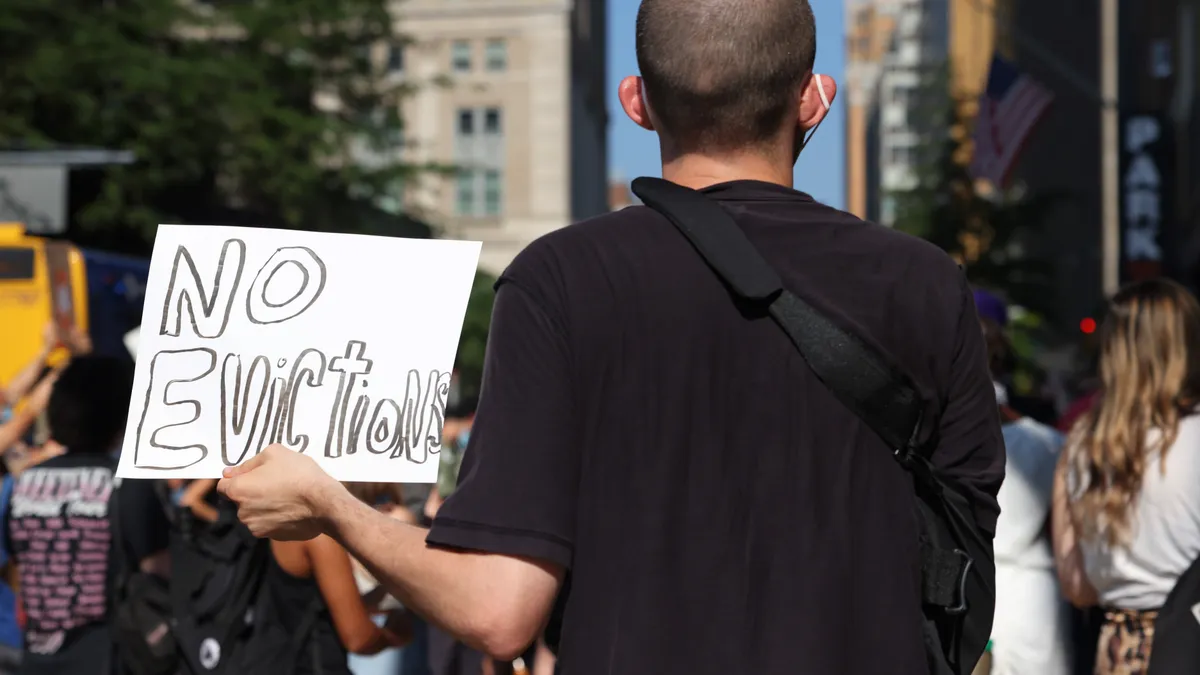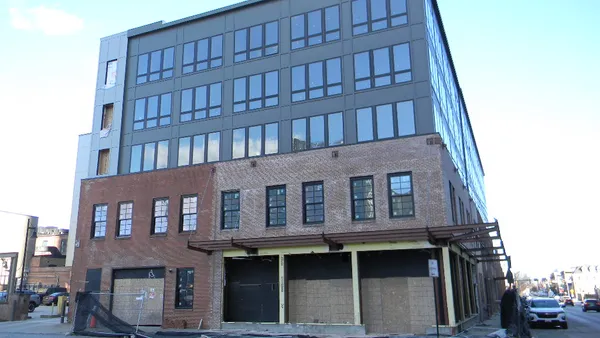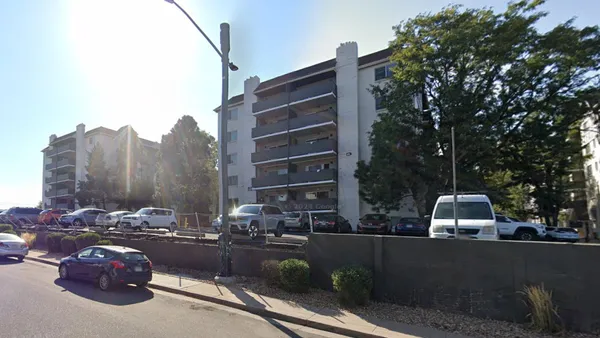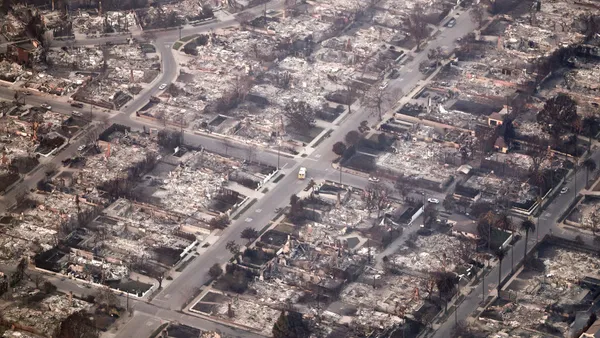Dive Brief:
- Low-income tenants who received free legal representation through New York City's Universal Access program experienced better outcomes in housing court cases in which they faced eviction, a recently released Princeton University Department of Economics study found.
- Tenants who received legal council under the program enacted in 2017 were far less likely to receive a judgment in housing court requiring them to either pay off their rent or face eviction. Likewise, they were less likely to have an eviction warrant issued against them and owed less back rent following a judgment.
- Several cities have since followed New York City's lead by enacting similar programs that provide free legal help to low-income tenants facing eviction. "In the absence of the program, landlords typically have legal representation while tenants do not. This creates an imbalance which favors landlords," said co-author Janet Currie, a professor of economics and public affairs at Princeton.
Dive Insight:
At the start of the COVID-19 pandemic, the federal government issued a moratorium on evictions to prevent an eviction and homelessness crisis. That moratorium expired in August 2021 after the U.S. Supreme Court struck it down and the remaining state moratoriums have since expired. Meanwhile, many cities are facing a housing affordability crisis that has made it difficult for many renters to make their monthly payments.
Evictions rose steadily after the federal moratorium expired. According to the Princeton University Eviction Lab, which tracks evictions across six states and 31 cities across the U.S., there have been more than 900,000 evictions filed in those jurisdictions alone since mid-March 2020.
Evictions can lead to homelessness. People who are evicted often lose their housing deposit and many of their belongings, Currie said. They may also not have first and last month's rent so they can't move into another place and other temporary housing options such as hotels would quickly drain their savings, she said.
While most people who are evicted do not immediately move into a shelter or onto the streets, eviction engenders housing instability, which is linked with a number of adverse impacts such as diminished physical and mental health, food insecurity, employment challenges, and worse performance in school, added co-author Michael Cassidy, a postdoctoral research associate at Princeton. Those impacts "sooner or later, may snowball into increased risk of homelessness," he said.
Housing cases in court can be fast-paced, complicated and difficult for people who are unfamiliar with the procedures to follow, said Currie.
There is an inherent power imbalance in housing courts, in which low-income tenants are at a disadvantage when responding to legal action pursued by their landlord, said Natasha Leonard, senior program specialist for housing and community development at the National League of Cities. Between 80% and 90% of landlords in many cities and states have legal representation in court compared with an estimated 3% to 10% of tenants, she said.
"The significance of that is demonstrated by the court case outcomes," said Leonard.
According to the report, 68% of New York City's residents are renters. In 2017, the city became the first in the U.S. to enact a law creating a program that provides universal legal representation to low-income tenants in housing court. Several cities have since followed suit with similar programs that provide free legal help, including Newark, New Jersey, San Francisco, Philadelphia, Santa Monica, California, and Boulder, Colorado.
Outside those programs, "Low-income tenants often have few other places to get assistance with their legal cases and may also have few options in the event that they [are] evicted," Currie said. "Non-White and non-citizen populations may also be more fearful of legal proceedings and less likely to actively fight them in the absence of legal representation."
To evaluate the program's effects, Princeton researchers assessed housing court records from 727,703 cases, the report stated.
Tenants in their sample were 88% more likely to have had legal representation as a result of the program. Tenants who were eligible for assistance once the program was enacted and secured legal representation were also 62% less likely to be subject to possessory judgments, meaning the court found they either had to pay off their rent or face eviction. They were also 72% less likely to have eviction warrants issued against them and saw an 85% reduction in monetary judgments against them for debts like back rent. They also found evidence that lawyers reduced the likelihood of evictions being carried out.
Many cities throughout the U.S. are currently exploring or enacting some form of legal representation for tenants as part of their broader eviction prevention and diversion efforts, said Leonard. However, the approach varies based on the needs of the community, the size of the city and its existing legal aid infrastructure, as well as state and local legal frameworks and available funding.
"We’ve seen time and time again that having adequate legal representation can be the difference between eviction — sometimes homelessness — and reaching a settlement for tenants," said Leonard. "Legal representation programs like the one in New York City work to address that disparity and help to ensure more fair legal proceedings and outcomes."












